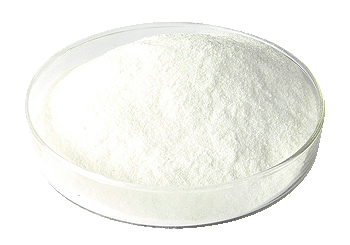Product introduction
Carrageenan

Product introduction
Carrageenan
Carrageenan-a textural ingredient with extremely effective gelling properties-is produced from red seaweed, which can be found along coastlines all over the world.
It is named after the Irish town of Carragheen, which was once famous for a dessert produced by boiling milk and seaweed.
Products
Carrageenan consists of sulphate esters of galactose and 3,6-anhydrogalactose.Red seaweed produces three different types of carrageenan-known as kappa, iota and Iambda carrageenan. Most commercial carrageenan products consist of a mixture of all three types. Carrageenan must be heated to dissolve.
Kappa carrageenan forms a gel on cooling in the presence of potassium ions or proteins, whereas iota carrageenan requires the presence of calcium ions to form a gel. Lambda carrageenan is incapable of forming gels, but can be used to control viscosity.
Application areas
Due to its ability to interact with milk proteins, carrageenan is widely used in milk-based applications:
● in ice cream to prevent whey separation
● in milk gels to obtain the desired consistency
● in chocolate milk to avoid the precipitation of cocoa particles
● in low-sugar jams and jellies for gelling purposes
● pet food
It is named after the Irish town of Carragheen, which was once famous for a dessert produced by boiling milk and seaweed.
Products
Carrageenan consists of sulphate esters of galactose and 3,6-anhydrogalactose.Red seaweed produces three different types of carrageenan-known as kappa, iota and Iambda carrageenan. Most commercial carrageenan products consist of a mixture of all three types. Carrageenan must be heated to dissolve.
Kappa carrageenan forms a gel on cooling in the presence of potassium ions or proteins, whereas iota carrageenan requires the presence of calcium ions to form a gel. Lambda carrageenan is incapable of forming gels, but can be used to control viscosity.
Application areas
Due to its ability to interact with milk proteins, carrageenan is widely used in milk-based applications:
● in ice cream to prevent whey separation
● in milk gels to obtain the desired consistency
● in chocolate milk to avoid the precipitation of cocoa particles
● in low-sugar jams and jellies for gelling purposes
● pet food


